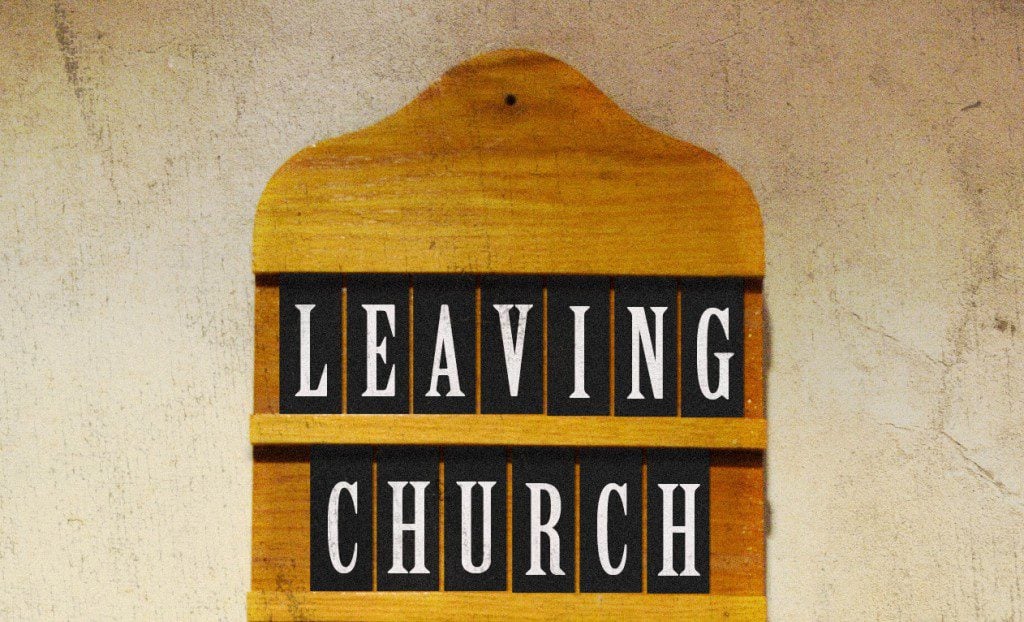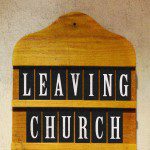 So this is my next to last post in this blog series responding to a great article in the Atlantic called “America’s Empty Church Problem”
So this is my next to last post in this blog series responding to a great article in the Atlantic called “America’s Empty Church Problem”
I loved this article, because it’s written to and by people who have previously assumed that America’s Empty Churches weren’t a problem, they were the solution!
But this article points out that this thinking is both naive and misguided. When people leave church we don’t have some kind of secular uptopia but instead a more shrill and delicate one, in which people are easily offended and tribalism/racism/nationalism take root.
All the responses to this have been mostly pointing out all the legitimate problems that churches have. I concede that.
I know racist, legalistic churches too.
I’m a B.U.I.C.K. a “brought up in church kid” and I’ve been around church my entire life, I’ve seen the very worst in us.
But I’ve also seen the best.
Dinner Is Served
Every week I get to stand up and talk about the Love of God to a lot of people. Almost every week, I hear or participate in stories about people having their lives changed in wonderful ways.
But the best part of church to me has been the casseroles.
My wife and I have five kids under the age of 8. Which means we have had more than our fair share of church sponsored meals. Last year, when we had our annual baby, our small group noticed how…ummm….overwhelmed we were, and decided to extend the meals to 8 weeks after the baby was born.
That’s 7 days x 8 weeks x 7 mouths of food.
Dozens of people came over to bring us dinner, some of them left quickly (due to the fact that walking in a house with 5 young kids is a bit like walking into Chuck-E-Cheese at rush hour) but most pulled up a chair and stayed or helped or played with the kids.
And every single time they left us with more than just food. They left us with the knowledge that we were cared for and loved, and that they, by taking the time out of the life to do this for us, were performing an act of worship for a God who loved us too.
A few years ago, a well known Christian writer talked about how powerful this is. She was writing about her journey away from church and the tug she was feeling back toward it.
She chronicles the legitimate problems she had with the churches around her, but she kept asking the question “Who will bring us casseroles when we have a baby?”
To some, this may seem like a bit of religious blackmail, a bit of carrot on a stick in the guise of Chicken Spaghetti, but for me it gets to the heart of what we are walking away from.
What is Church but a way of sharing the Sacraments, learning about the God who literally has defined Love for all of Western Civilization, and calling us to love one another.
Church is a laboratory of love and peace and care, and while there are plenty of examples of us not doing that, we are only pointing out the exceptions that call us back to the rule.
But then this writer went on to say that while she experienced God in the Eucharist (communion) and worship and fellowship, she didn’t so much experience God in the offering plate or the building fund.
And that part stuck with me.
I’m a pastor, so a part of the money put in the offering plate makes it’s way into my bank account twice a month, and when there is a building fund I’m the one called upon to talk about it.
Now I’m not picking on this particular blogger, I like her work, and I hope you can read this as more than job-preservation talking here.
I’m writing this because some version of that is what I hear beneath the surface of so many people leaving church.
And by the way, I get it, I’m a millennial too.
I inherited a robust cynicism toward institutions just like my peers, and relatedly also the same sense of loneliness and ache to be a part of something bigger than myself.
Institutionalist Vs. Insurrectionists
So back to that Atlantic article. It ends by referring to the book Twilight of the Elites, where MSNBC host Chris Hayes divides American politics between “institutionalists,” who believe in preserving and adapting the political and economic system, and “insurrectionists,” who believe it’s rotten to the core.”
And the article concludes by saying that 2016 showed a remarkable shift from the first to the latter. We no longer believe in Institutions as anything but cold soul-less bureaucracies. But the truth is we need Institutions, and we have a far too limited view of what they are…and how they work.
No one has done more to convince me of this than Andy Crouch. Who once wrote:
The modern bureaucratic organization is relatively new. Historically, institutions are much more varied and valuable things. In the broadest sense, an institution is a cultural pattern of rules and roles, artifacts, and arenas for human creativity and action that passes from one generation to the next.For cultural change to grow and persist, it has to be institutionalized, meaning it must become part of the fabric of human life through a set of learnable and repeatable patterns. It must be transmitted beyond its founding generation to generations…
Indeed, the best institutions extend shalom—that rich Hebrew word I paraphrase as “comprehensive flourishing”—through both space and time.
Yes Institutions often involve paying the light bills and meetings about rising insurance premiums, but at their best, that’s not anywhere near all they are. They are a way of passing on a way of life from one generation to the next that is worth preserving.
So the question is it worth preserving or not?
Just this Sunday, I have a friend of mine who told me about how another person in church had given him a car, and watched as other members of the church gave money so that he could get it legally transferred. My friend, is a black ex-offender who lives well below the poverty line. And every week I see him leave church with his head held a little higher and with a bit more dignity than when he came in.
Just this past Sunday I had a friend tell me that she was tired of being out of work, and that someone from church had offered to give her a ride every day for 6 weeks to Faith Works (a non-profit institution in town that helps get jobs for unemployed people).
Just this Sunday, I sat next to a family who a year earlier was on the brink of divorce, but because of a marriage ministry at our church they are now flourishing again.
Those kinds of stories are everywhere in a healthy church community, but they don’t make the press, and frankly that’s what makes this Atlantic article exceptional. Because the cumulative effect of those kinds of stories does something to make the world a better, more just and kinder place.
We want someone to bring us a casserole and yet we also want to skip out on the institutional part, only because we have forgetten that the casserole is part of the institution.
The cynical way to read this is that I’m a pastor who wants to keep his job. But please read this bit fairly. I didn’t get into this and then start believing in church. I got into this because I first believed in church.
I grew up in a ten person church that was the place where cynicsm goes to die. They were hospitable, godly, loving and generous. Because I grew up poor, they took out a loan for me to go to college and helped raise me into the man I am today.
They passed on to me a way of life that was beautiful and I want to pass it on to others. I’ll do the institutional stuff do, but never for it’s own sake, I’m not interested in propping up something that doesn’t make the world a better place.
But because I’ve seen how it does, I want to help make it something that will last.
I’d like someone to bring a casserole to my grandkids if they ever have a baby too.











